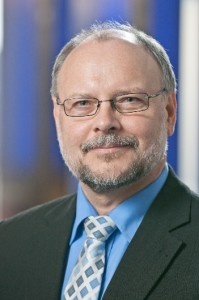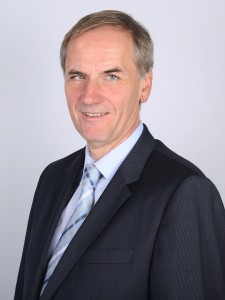Decentralized provision of active power by means of dynamic virtual power plants
Michael Sonnenschein, University of Oldenburg & OFFIS Institute for Information Technology
Currently virtual power plants are statically structured coalitions of medium sized power suppliers (and possibly controllable loads and storage systems) controlled by a centralized control unit. In this talk our model of dynamic virtual power plants (DVPPs) controlled by distributed, agent-based methods will be introduced. DVPPs are dynamically formed to provide specific power products. Compared to static VPPs they offer more flexibility to integrate small distributed units like micro-CHPs of different types, and they allow distributed units to hide some private information.
Within this context, the objective of this talk is to introduce a seamless process chain for day-ahead based active power provision by means of DVPPs. In the project cluster Smart Nord we developed a multi-agent system realizing the aggregation algorithm, the reactive scheduling heuristic as well as the flexibility modelling used for DVPP management and control.
Prof. Dr. Michael Sonnenschein studied computer science and mathematics at the Aachen University of Technology; PhD and Habilitation in computer science 1983/1991 also at the Aachen University of Technology. Since 1991 he is professor for Computer Science at the Oldenburg University and head of the group ‘Environmental Informatics’. Connected to this, he is member of the executive board ‘Energy’ at the OFFIS Institute for Information Technology. His research interests include modelling and simulation, nature-inspired optimization, and self-organization of smart grids.
Prosumers and Disruptive Technologies – Challenges of the Energiewende
Holger Krawinkel, MVV Energie AG
Looking at the ongoing changes in the energy sector, the question arises of whether and how this transformation can be successful. Basically, two important principles of the energy sector are threatened: The supply and the high costs for storing electricity. Over decades electric utilities built up know-how in managing electricity flows. This knowledge, which was strengthened through the Energiewende, might lose its value soon. If storage costs should be cut in half till the end of 2016 and PV panels keep getting cheaper, the tipping point for energy autarky might be reached earlier than expected. In addition, PV might soon be integrated in the facades of buildings in near future. These changes require transferring the aggregated know-how of the electric utilities into the (energy) management of buildings.
Dr. Holger Krawinkel studied urban and regional planning at the universities of Giessen, Oldenburg and Copenhagen. In 1983, he started working in the regional governments of Hesse and Schleswig-Holstein. Thereafter, he was the managing director of the Energy Foundation Schleswig-Holstein and then division manager for energy and traffic at the Federation of German Consumer Organizations. He carried out each position for approximately 10 years. In July 2014 he became head of the newly created policy unit Customer Experience at MVV Energy in Mannheim. In January 2014 this unit got expanded by the section innovation.

